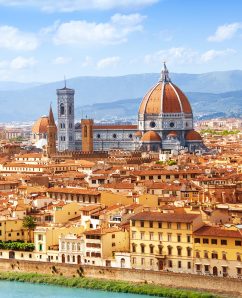Beyond personal finance: the rise of ESG and the new meaning of economic education
Learn the basics of financial literacy, from budgeting to ESG and sustainable finance. Understand why economic education...
Read moreOK, let’s be clear. ‘Family business’ is still somewhat uncharted territory, there is not even a single definition, but trust me, it is a topic that is driving the business world, associations, banks and politicians crazy. Why? Simple: most companies, here in Italy and elsewhere, are family businesses. Think of how many there are, from the bar down the street to world-famous multinationals!
And the absurd thing is that until now there was no interdisciplinary course that seriously addressed this issue at university or European level. Well, we at the European School of Economics have decided to fill this void. Let’s start with the basics: what is a family business? It is the union of three things: the family, the family business and the entrepreneur’s assets.
But beware, things have changed radically since the post-war period. The family is no longer what it used to be, the ties are different, and children may not want to take on entrepreneurial responsibilities, perhaps frightened by the market or their parents’ complaints. The family business, then, requires more and more entrepreneurial commitment, especially when finding credit becomes a business. And family wealth? For the new generations it is more ‘knowledge’ than houses or land to invest. In short, the family business is no longer a safe haven to take refuge in without having the right entrepreneurial skills.
In Italy, he thinks, more than 80% of businesses are in the hands of families. Of all sizes! The phenomenon is super widespread: 60% in France, 70% in India, 75% in Spain and Australia, 86% in South America, 88% in the UK, even 96% in the US! For decades, we focused only on the company and its problems, at most giving a little space to the interaction between the company and the family owner.
Few, however, have truly understood that the family capitalism model cannot ignore the analysis, both numerical and ‘quality’ analysis of these three key elements: the family, the family business and the entrepreneur’s assets. They are different things, with different logics and needs, but they are closely linked. And above all, the concepts of family and wealth are constantly evolving. This is the third millennium, guys! So, there is an evolution (or involution) for all three elements that mix and intertwine to form the so-called Family Business.
The success of the individual family business and the survival of family capitalism depend on how well balanced these three ‘ingredients’ are . It is a simple concept, but look how many business cases are around where this balance does not exist! One goes on unbalanced, with difficulty. There are many risks. If the family and the assets are OK, the company usually is too. But if the family is at war, or the assets are badly managed, or the business is run with too much family logic, no amount of corporate, financial, economic or personnel reorganisation will work miracles.
Only by balancing family, business and assets can the family capitalism model be guaranteed a future. Companies that may be doing well but are unbalanced on the family side (too many quarrels) or on the asset side (too many withdrawals) have their days numbered. Many are in that ‘middle ground’: they do not sink but do not take off, not even the shadow of balance.
How do you find this balance? There are a few ways. For example, writing clear family rules regulating ownership and management (who is manager and who is partner); periodically assessing assets, deciding how to protect them and how to pass them on to future generations; making banks and institutions understand one’s entrepreneurial dreams, communicating with clear data; ‘defamilitarising’ the company, even if only for a period, with the help of new management models.
Our course, after analysing how to consider the three elements Family, Family Business and Assets in a modern key today, goes straight to the point: it identifies for each element the problems that block its development. And in the end, it gives you the concrete tools, paths and projects to help those who work with or in family businesses. Knowing the ‘family business environment’ will enable you, like a swimmer, to adapt to the pool, the sea, the rivers, the lake, the ocean, even if the conditions are very different. Because the conditions of family, business, professional activity and personal wealth will be very different. And it is essential to understand the dynamics of that environment (for the swimmer, currents, water temperature, waves and depth).
A course designed for students, with the aim of giving you a basic grounding if one day you have to carry on your family’s entrepreneurial dream, or if you want to (or will) work in the fascinating world of family business. We, at the European School of Economics, give you the cards to play it safe!

Learn the basics of financial literacy, from budgeting to ESG and sustainable finance. Understand why economic education...
Read moreStudy at ESE London in Mayfair. Become a global leader with personalized education, internships & an international...
Read moreEuropean School of Economics offers scholarships, credit transfers & global experience. Escape US visa issues &...
Read moreFind your perfect student accommodation in Madrid! Our 2025 guide offers tips on neighborhoods, rent, housing platforms,...
Read more